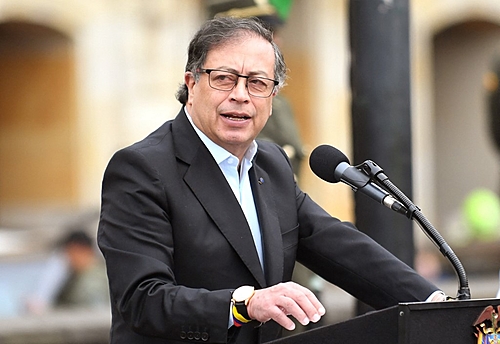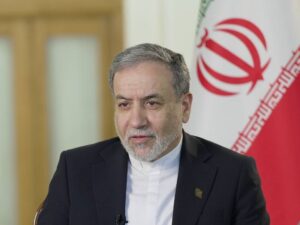
Israel’s biggest ally in the Middle East, the Jordanian government announced this Wednesday (1) the withdrawal of Israel’s ambassador in protest at the attacks on Gaza, which killed more than 8,000 people, including 3,000 children.
Jordanian Foreign Minister Arman Safadi has notified the Israeli Foreign Ministry that it should not send back the Israeli ambassador to Amman, who left due to security precautions at the start of the war. Safadi says this must remain in place until the end of the war and humanitarian crisis in Gaza.
In diplomatic circles, summoning an ambassador for consultation does not mean a break in relations, but it is a serious gesture that is often used to express discomfort or discontent with a foreign country.
Bolivia was the first country to summon the Israeli ambassador this Tuesday afternoon (31). Also on Tuesday night, Chile and Colombia announced that they were summoning their respective ambassadors in Israel for consultations.
The decisions were communicated by the Colombian presidents, Gustavo Petro, and Chilean presidents, Gabriel Boric, hours after the Bolivian government announced the total break of diplomatic relations with the Israeli state.
::Israel and Palestine: an endless war::
“I decided to summon our ambassador to Israel for consultations. If Israel does not stop the massacre of the Palestinian people, we cannot be there,” Petro wrote on his social media.
This was the most extensive measure taken by the Colombian president since he threatened to break relations with Israel on October 15, after the Israeli government summoned the Colombian ambassador to protest Petro’s statements in support of Palestine.
At the time, the Colombian president had stated that his government would not support “the genocide committed by Israel” in the Gaza Strip and said: “if we have to suspend foreign relations with Israel, we will.”
:: Israel intensifies bombings and carries out land incursions into Gaza ::
The Chilean president stated this Tuesday that Israeli military actions in Gaza are “unacceptable violations of International Humanitarian Law” and called for an “immediate end to hostilities”.
“Chile strongly condemns and observes with great concern that such military operations – which at this point are a collective punishment for the Palestinian civilian population in Gaza – do not respect fundamental norms of International Law, as demonstrated by the more than 8 thousand civilian victims, in mostly women and children,” said Boric.
Bolivia, Colombia and Chile became the South American countries that most escalated their diplomatic tone in rejection of Israel’s latest military actions against Gaza, which began on October 7th.
:: Night of massacre: Israel says it hit 600 targets in the largest air strike against Gaza ::
Also on the continent, Venezuela has been harshly condemning the Israeli attacks, classifying the actions as “a genocide” and organizing marches in support of the Palestinian cause. Caracas broke off relations with Israel in 2009, during the government of former president Hugo Chávez.
Last week, President Luiz Inácio Lula da Silva increased the tone regarding the conflict by classifying the war as “genocide”. “What is happening right now in the Middle East is very serious. It’s not about arguing who is right or wrong, who fired the first shot or the second. The problem is this: it is not a war, it is a genocide that has already killed almost 2 thousand children, who have nothing to do with this war, who are victims of this war”, said Lula on Tuesday (25).
Through social media, President Lula has spoken out against the constant bombings of Gaza, which have already left more than 3,000 children dead.
“We are seeing, for the first time, a war in which the majority of those killed are children. Nobody takes responsibility and we haven’t even been able to issue a letter from the UN convincing a ceasefire. Stop! For the love of God, stop!”, wrote the president this Tuesday (1).
In its temporary presidency of the UN Security Council, Brazil made efforts to mediate a “ceasefire” to guarantee humanitarian aid to the population in Gaza. The Brazilian resolution proposal received 12 votes from the 15 member countries of the council, but ended up being vetoed by the United States.
Upon leaving the presidency of the council this Tuesday, Brazilian chancellor Mauro Vieira criticized the collegiate’s performance. “It’s desperate not to have a consensus” on the war, said Vieira.
Jordan
The Israeli embassy in Jordan has withdrawn almost all staff working at the Israeli embassy in anticipation of a protest against Israel in the capital Amman. According to information
Editing: Leandro Melito

Source: www.brasildefato.com.br

